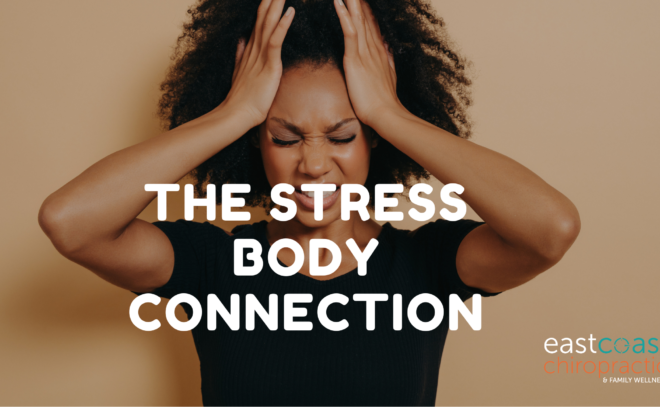The Stress Body Connection

We all know stress isn’t good for us, but many of us don’t realize how deeply it affects our lives. While technology advances, stress levels are skyrocketing. According to Statistics Canada, over 4 million Canadians—21% of the workforce—are dealing with high or very high levels of work-related stress.
Mental and physical health are closely linked. In fact, mental health is physical health. To live a fulfilling life, we need to manage stress effectively.
How Stress Hurts Us
Chronic Stress Takes a Toll on the Body: Stress-related issues account for 75-90% of doctor visits. Chronic stress raises heart rate, blood pressure, and cortisol levels, harming sleep, digestion, and immunity. Over time, excess cortisol can lead to hypertension, acne, weight gain, and fatigue. It also reduces the release of growth hormone, which is vital for metabolism and bone health.
Increased Risk of Injury: Stress can even lead to unexpected injuries. Clinically, we’ve seen cases where individuals, under stress but with no other health or activity changes, suddenly suffer from an injury. A 30-year-old man, for example, developed severe lower back pain during an especially stressful time at work. This happens because stress increases muscle tension and reduces coordination and body awareness.
Decreased Quality of Life: Hustle culture often makes us lose sight of joy. Many, like Time Magazine and the BBC, are now rejecting this mindset due to its role in anxiety, depression, and burnout. Parental stress is also on the rise, with one-third of parents rating their stress at 8/10. Emily Ballesteros, author of The Cure for Burnout, reminds us, “This should be fun.”
What Can You Do?
Emily and Amelia Nagoski, in Burnout: The Secret to Unlocking the Stress Cycle, explain that we need to manage both stress and its root causes.
Complete Your Stress Cycle: Find what works for you: exercise, nature, singing, or deep breathing. These activities help burn off stress hormones and signal to your body that it’s safe. Remember, stress is a primal response meant for survival, even though our modern stressors don’t require us to outrun predators.
Tackle the Cause of Stress: Addressing the source of stress can be tough, but it’s essential. This might mean setting boundaries, changing routines, prioritizing self-care, or even switching careers. Therapy or consulting a healthcare provider can be game-changers.
Take Care of Your Body: Being under regular chiropractic care is a great way to increase your body’s resilience to stress and minimize some of the physical effects that you feel when you’re under stress. Regular massage, and wa
Stress is not just a state of mind; it’s a full-body experience. To live fully, we must manage it wisely, for both our mental and physical health depend on it.